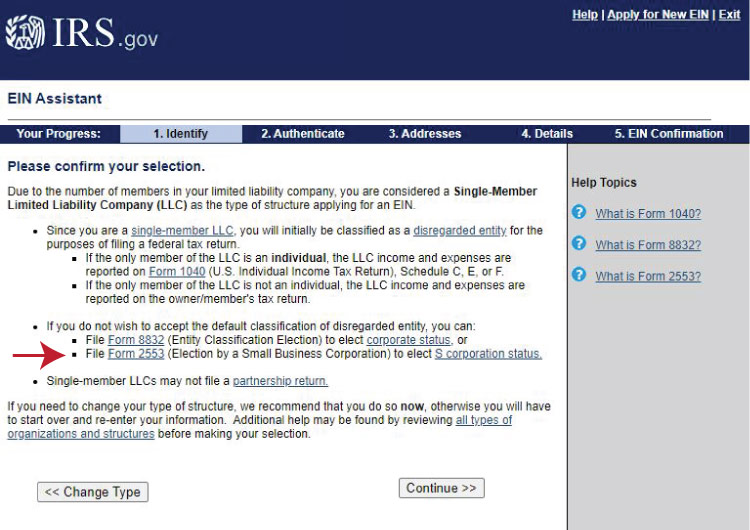How to Start an S Corp in Texas
Forming an S corporation (S corp) in Texas can help your business save on taxes under the right circumstances.
This guide will walk you through the required steps for starting an S corp in Texas and help you decide if it’s the right move for your business.
Keep reading to learn how to set up your Texas S corp and potentially reduce your tax burden.
Pro Tip: Get a free consultation with a tax professional to determine if an S corp is right for you.

Factors to Consider Before Starting an S Corp in Texas
Before forming an S corp, you have to consider the following factors:
- Is an S corporation the best strategy for your business?
- S corporation restrictions
- Are S corp tax advantages right for you?
Is an S Corporation the Best Strategy for Your Business?
For help with choosing the right structure for your business, visit our Choosing a Business Structure guide.
S Corporation Restrictions
S corps have several restrictions, such as being limited to one class of stock and 100 shareholders. Read our What Is an S Corporation guide for full details.
Are S Corp Tax Advantages Right for You?
An S corporation is a tax designation that can be elected by a limited liability company (LLC) or corporation. With an S corp, business owners are considered employees of the company and must receive a reasonable salary. Since all S corps technically have employees, the s corp must run payroll.
In order to benefit from a Texas S corp tax designation, your business needs to make enough money to offset payroll expenses. Furthermore, S corps are beneficial for business owners who take large distributions in addition to their salary.
To learn more about the tax advantages of an S corp, read our LLC vs. S corp guide and take a look at our S Corp tax calculator.
Pro Tip: Get a free consultation with a tax professional to determine if an S corp is right for you.
How to Form a Texas S Corp
There are two main ways to start an S corp:
- By forming an LLC and electing S corp tax status from the IRS when you request your employee identification number (EIN)
- By forming a corporation and electing S corp status from the IRS
We recommend forming an LLC because it’s simpler and more cost-effective.
Want to form an S corp elsewhere? Check out our other How to Start an S Corp guides to learn more.
Recommended: If you have an existing LLC, visit our How to Convert an LLC to S Corp guide.
Steps for Forming an LLC and Electing S Corp Status in Texas
Starting a Texas LLC and electing S corp tax status is easy. You can use our guides to start an LLC with the S corp status yourself, or you can hire a service provider like Northwest to guide you through this process.
There are five basic steps to start an LLC and elect S corp status:
Step 1: Name Your LLC
Step 2: Choose a Registered Agent
Step 3: File the Certificate of Formation
Step 4: Create an Operating Agreement
Step 5: Get an EIN and File Form 2553 to Elect S Corp Tax Status
Step 1: Name Your LLC
Choosing a company name is the first and most important step in starting your LLC in Texas.
Be sure to choose a name that complies with Texas naming requirements and is easily searchable by potential clients.
1. Follow the naming guidelines for a Texas LLC:
- Your name must include the phrase “limited liability company,” or one of its abbreviations or words: “LLC, L.L.C., Limited, Ltd., Company or Co.”
- Your name cannot include words that could confuse your LLC with a government agency (FBI, Treasury, State Department, etc.).
- Restricted words (e.g., Bank, Attorney, University) may require additional paperwork and a licensed individual, such as a doctor or lawyer, to be part of your LLC.
- For a list of naming rules in Texas, you can read the Texas Secretary of State’s guidelines.
You can also read the Texas state statute about LLC naming guidelines for more information.
2. Is the name available in Texas? You can use the taxable entity search on the Texas Comptroller of Public Accounts website to see if your desired LLC name is available.
3. Is the URL available? We recommend checking to see if your business name is available as a web domain. Even if you don’t plan to create a business website today, you may want to buy the URL in order to prevent others from acquiring it.
Step 2: Choose Your Texas Registered Agent
You must elect a registered agent for your Texas LLC.
An LLC registered agent will accept legal documents and tax notices on your LLC’s behalf. You will list your registered agent when you file your LLC’s Certificate of Formation.
Many business owners choose to hire a registered agent service. Many of these services will form your LLC for a small fee and include the first year of registered agent services for free.
Texas Registered Agent Consent to Appointment
Registered agents in Texas must consent to their appointment in written or electronic form. The statement of consent should include:
- The name of your LLC
- An express statement that the person designated consents to serve as the LLC’s registered agent
- The name of the person designated as registered agent
- The signature of the registered agent
- The date of execution
The consent statement doesn’t have to be filed with the Secretary of State. For in-depth information on this requirement, as well as a fillable consent form, view the Acceptance of Consent Form 401-A.
Step 3: File the Texas LLC Certificate of Formation
The Texas Certificate of Formation is used to officially register an LLC.
File Your Texas Certificate of Formation
OPTION 1: File Online With Texas SOSDirect
File Online– OR –
OPTION 2: File Form 205 by Mail, by Fax, or in Person
Download FormState Filing Cost: $300, payable to the Secretary of State (Nonrefundable)
Mailing Address:
Secretary of State
P.O. Box 13697
Austin, TX 78711
Office Address:
James Earl Rudder Office Building
1019 Brazos
Austin, TX 78701
Fax: (512) 463-5709
Step 4: Create an LLC Operating Agreement
An LLC operating agreement, known in Texas as a company agreement, is a legal document that outlines the ownership and member duties of your LLC.
For more information, read our Texas LLC Operating Agreement guide.
Our operating agreement tool is a free resource for business owners.
Step 5: Get an EIN and Complete Form 2553 on the IRS Website
An EIN is a number that is used by the US Internal Revenue Service (IRS) to identify and tax businesses. It is essentially a Social Security number for a business.
EINs are free when you apply directly with the IRS.
Elect S Corp Tax Status
During the online EIN application, the IRS will provide a link to Form 2553, the Election By a Small Business form.
Visit our Form 2553 Instructions guide for detailed help with completing the form.
This is the form to elect S corp tax status for your LLC:

Ready to start saving on your taxes?
We recommend using a formation service to start your Texas S corp for you, so you can focus on the things that matter most — growing your business.
Keep Your Texas S Corp Compliant
After forming your Texas S corp, it’s important to adhere to state regulations to ensure your business remains in good standing and fully complies with the law.
File the BOI Report
The federal government requires all LLCs and corporations to file a Beneficial Ownership Information (BOI) report with the Financial Crimes Enforcement Network (FinCEN). This report is crucial for maintaining up-to-date federal records on who owns or controls your business.
You can submit the BOI report through the FinCEN website.
Open a Business Bank Account
Keeping your business finances separate from your personal finances is essential for protecting your LLC’s liability shield. Opening a business bank account is a key step in maintaining clear and compliant financial records.
Explore the top options for your business in our guide on the Best Banks for Small Business.
Obtain Required Business Licenses and Permits
Texas businesses must secure the appropriate state and local licenses or permits to operate legally. The exact licenses needed will depend on your business’s industry and location within the state.
To determine which licenses apply to your business, visit our Texas Business License guide.
Submit Your Annual Franchise Tax Report
In Texas, S corps must file an Annual Franchise Tax Report with the Texas Comptroller of Public Accounts. This report is due every year by May 15 and includes the Public Information Report (PIR). Failing to file can result in penalties or forfeiture of your business’s legal status.
You can file your report online through the Texas Comptroller’s eSystems portal.
Understand Texas S Corp Tax Obligations
Texas doesn’t impose a state income tax, which can be beneficial for S corporations. However, your business will still need to comply with federal tax obligations and the state’s franchise tax requirements.
For detailed information on Texas tax responsibilities, visit the Texas Comptroller’s Franchise Tax page.
Fulfill Texas Sales Tax Requirements
Texas has a statewide sales tax, and local jurisdictions may impose additional sales taxes. If your S corp sells taxable goods or services, you must register for sales tax and comply with state and local tax laws.
For more information on Texas sales taxes, visit the Texas Comptroller’s Sales and Use Tax page.
Start a Texas S Corp FAQ
An S corporation (S corp) is a tax designation that an LLC or a corporation can elect.
No. The default taxes for an LLC and taxes for an S corp are not the same.
With an S corp, owners pay personal income tax and self-employment tax on a predetermined salary. They may then withdraw any remaining profits from the business as a “distribution,” which isn’t subject to self-employment tax.
With an LLC, all company profits pass through to the owners’ personal tax returns, and then the owners must pay personal income tax and self-employment tax on the entire amount.
S corp owners are required to earn a “reasonable” salary, which basically means a fair market rate based on the individual’s qualifications as well as their duties and responsibilities at the company. The purpose of this requirement is to prevent S corp owners from paying themselves an artificially low salary in order to pay less self-employment tax.
A distribution is a dividend that a shareholder/owner can take from the business profits that remain after a company pays all of its employee salaries. Shareholders must pay personal income tax on distributions, but distributions aren’t subject to self-employment tax.
LLCs and corporations that operate under a “doing business as” (DBA) name can choose the S corp election.
Texas has a robust economy that’s home to many industries beyond agriculture, including a growing technology industry, oil and natural gas companies, manufacturing firms, and more. Whether you plan to start a local restaurant, open a boutique retail shop, or offer a specialty service, your business can exist as an S corp if you meet the IRS’s requirements for an S corp.
Given its supportive business landscape, low taxes, and business incentives, Texas is a great state in which to start a business and form an S corp.